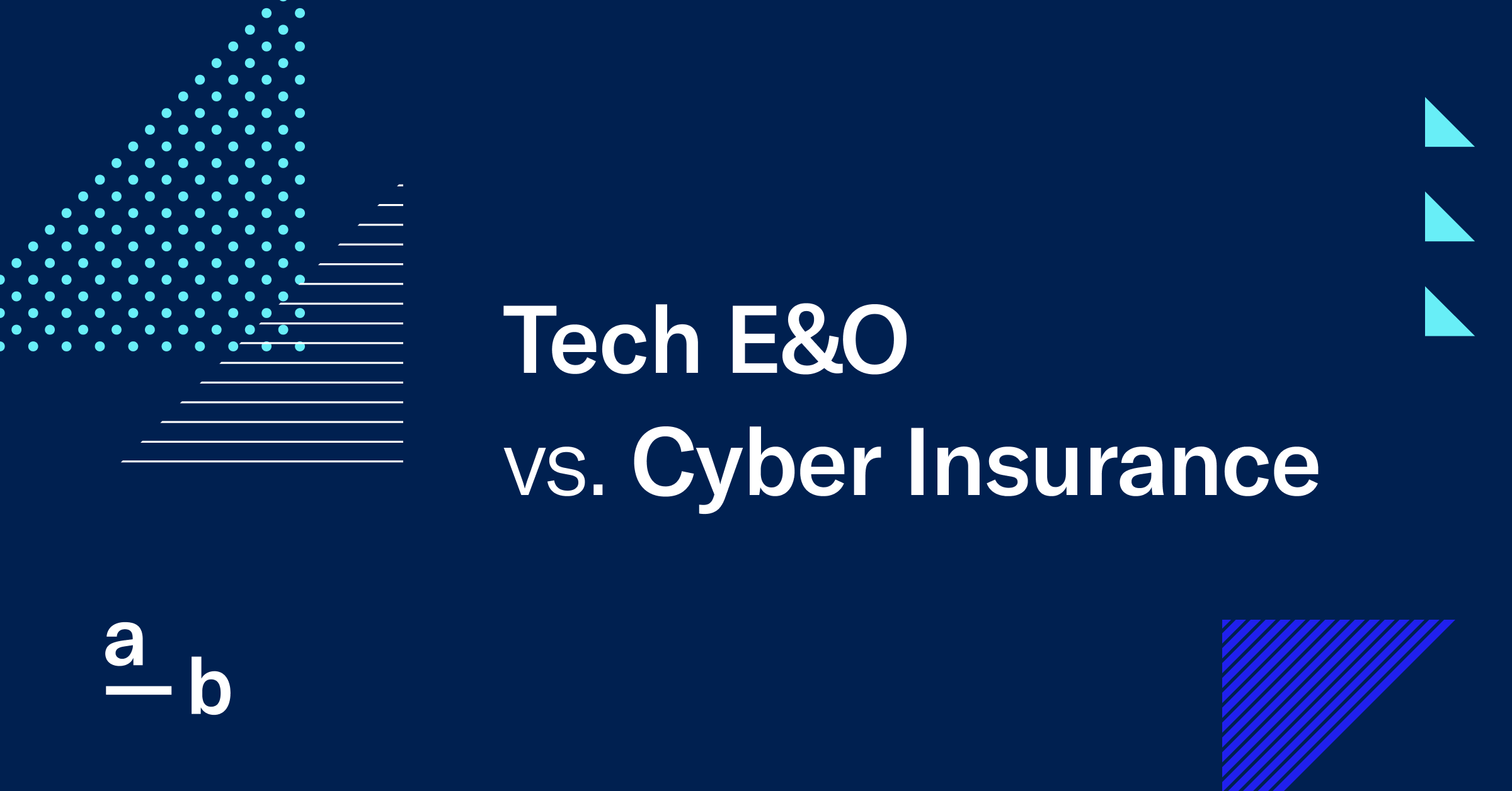Article
Understanding Reputational Harm in Cyber Insurance
Protecting your business’s reputation in the event of an attack
Protection against reputational harm is crucial for businesses of all sizes, from emerging organizations to large enterprises. A company’s reputation can suffer significantly in the event of a cyberattack, which can be disastrous for customer trust and can lead to regulatory implications, financial losses, and brand damage.
Rebuilding a business’s reputation after an incident can take time and create challenges — especially if the incident resulted from negligence. Businesses with a digital presence should build a strong security posture to reduce their cyber risk, but they should also make sure their cyber insurance policy includes reputational harm coverage so they can regain customer trust quickly in the event that an attack does get through their defenses.
What is Reputational Harm?
Within the cyber insurance context, reputational harm (also called reputational risk) describes when an incident results in damage to a business’s reputation. Because customers expect to maintain a confidential, trusting relationship with businesses and vendors, a cyberattack — especially one that affects or leaks customer information — can erode that trust, thus wreaking havoc on the brand’s reputation. This can prove costly.
Cyberattacks and data breaches can lead to negative impacts on a company’s reputation and bottom line, which isn’t quickly forgotten by current or potential customers. For example: In January 2023, T-Mobile experienced a cyberattack that resulted in a breach of personal data for 37 million customers, and the brand is still facing fallout from the loss of trust from current and potential customers. While this is an extreme example that made national news, reputational harm can be even more detrimental to emerging businesses that have fewer customers and therefore rely heavily on a positive reputation for retaining and gaining business.
Importance of Reputational Harm Coverage in Cyber Insurance
As part of a robust risk management program, cyber insurance that includes proactive security and reputational harm coverage can help an organization quickly recover and effectively minimize reputational damage in the event of a covered incident.
However, not all insurance providers are created equal. While InsurSec providers that combine insurance + security can help prevent cyberattacks before they happen, other providers may take a more reactive approach that does nothing to reduce policyholders’ cyber risk. On top of that, some cyber insurance providers may not offer reputational harm coverage. As with all vendor selection, businesses should select their insurance provider carefully to ensure they’re getting both prevention, protection, and all the coverages they need.
Reputational harm coverage within a cyber insurance policy holds significant importance for modern businesses. Here’s why:
Protecting Brand Reputation
A company’s reputation is one of its most valuable assets. A cyber incident resulting in reputational harm, like a data breach that leaks client data, can significantly tarnish a company’s image and diminish customer trust. Reputational harm coverage helps mitigate these risks by providing financial support for reputation management efforts, including public relations (PR), crisis communication, and brand rehabilitation.
Mitigating Financial Losses
Reputation damage can lead to tangible financial losses for businesses, including decreased sales, loss of customers, and increased costs associated with restoring trust and rebuilding brand reputation. A comprehensive cyber insurance policy can help offset these financial impacts by covering expenses related to customer notification, credit monitoring services, and legal fees stemming from claims.
Addressing Regulatory Compliance
In many jurisdictions, businesses are subject to regulatory requirements regarding client data protection and breach notification. Failure to comply with these regulations can result in fines, penalties, and additional reputational damage. Cyber insurance often includes coverage for regulatory fines and penalties, which can help businesses address compliance requirements and mitigate the financial repercussions of non-compliance.
Enhancing Cyber Resilience
Cyber insurance policies with reputational harm coverage typically include proactive risk management services aimed at enhancing cyber resilience. These services may include cybersecurity assessments, employee training, and incident response planning, helping businesses identify and mitigate potential reputational risks before they escalate.
Maintaining Stakeholder Confidence
Beyond customers, a company’s reputation also affects its relationships with stakeholders such as investors, partners, and suppliers. Reputational harm coverage provides assurance to stakeholders that the company is prepared to address reputational risks associated with cyber incidents, thereby maintaining stakeholder confidence and trust in the business’s ability to manage cybersecurity threats effectively.
Any cyber risk management strategy requires the recognition of the potential impact a cyberattack can have on brand reputation. By providing financial support, regulatory compliance assistance, and proactive risk management services, cyber insurance coverage helps businesses safeguard their brand reputation and maintain resilience in the face of evolving digital threats.
How to Manage Reputational Risk
The following are important preventative measures businesses can take to avoid damage to their reputation and/or financial losses as a result of a cyberattack or data breach:
Assess and Monitor Brand Reputation
Conduct periodic assessments to gauge the perception of your brand among stakeholders, including customers, partners, investors, and the general public. Monitor social media, online reviews, etc. to gather feedback and insights. Set up alerts for mentions of your brand name and key personnel to stay informed about any emerging issues or negative publicity.
Have a Crisis Management Plan in Place
Develop a comprehensive crisis management plan that outlines roles, responsibilities, and communication protocols for responding to cyber incidents. Establish clear lines of communication with internal teams, external stakeholders, and relevant authorities to ensure a coordinated and timely response.
Employ a Reputable Public Relations Company
Partner with a reputable PR company that specializes in crisis communication and reputation management. Look for PR firms with experience handling cyber incidents and a track record of successfully managing reputational crises for businesses in your industry.
Work closely with your PR team to proactively manage your brand’s reputation through strategic messaging, media relations, and crisis preparedness initiatives. Develop messaging templates and spokesperson training programs to ensure a consistent and effective response during a cybersecurity crisis.
Implement Strong Cybersecurity Measures
Businesses should implement a layered security strategy that includes measures such as network segmentation, access controls, encryption, and multi-factor authentication (MFA) to safeguard against cyberthreats. Conduct regular security audits and assessments to identify vulnerabilities and gaps in your security posture. Stay informed about emerging threats and security best practices to continuously improve your defenses against evolving cyber risks.
Develop an Incident Response Plan
Establish an incident response team composed of key stakeholders from IT, legal, compliance, HR, and communications departments. Define roles, responsibilities, and escalation procedures to ensure a coordinated and efficient response to cyber incidents. Implement monitoring tools and procedures to detect and report cyber incidents in a timely manner. Develop clear protocols for incident triage, containment, eradication, and recovery to minimize the impact on operations and reputation.
Considering a Managed Detection and Repsonse (MDR) solution? Download our MDR Buyer’s Guide for Small Businesses.
Ensure Your Cyber Policy Includes Reputational Harm Coverage
Review your cyber insurance policy to ensure it includes coverage for reputational harm resulting from cyber incidents. Evaluate the scope of coverage, policy limits, exclusions, and additional services offered, such as crisis management and public relations support. Work with your insurance broker or provider to customize your cyber insurance policy to meet your specific needs and risk profile. Consider factors such as your industry, business size, revenue, and potential reputational risks when selecting coverage options and limits.
Get Coverage for Reputational Harm with At-Bay
Reputational risk management is necessary for all of today’s businesses, no matter how big or small. An integral component of any risk management plan is InsurSec — an approach that integrates prevention and detection technology, the expertise of cyber professionals, and the backing of insurance to protect their reputation in the face of cyberattacks — which can protect a business in a way that neither insurance nor security can do alone. Without InsurSec, companies expose themselves to a potential brand crisis beyond repair.
Learn how At-Bay’s Cyber insurance offerings can help protect your business’s reputation →
Note: This information may not be used to modify any policy that might be issued, modify an existing policy, or imply that any claim is covered. For specific terms and conditions, please refer to the coverage form.







